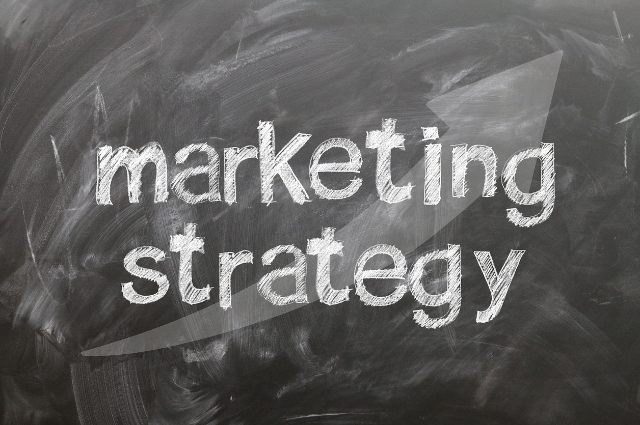
Image by Diggity Marketing from Pixabay
Do you know how this fast-paced and dynamic world of marketing is changing the way of marketing the brand?
Businesses are using not only traditional advertising but also content marketing strategies to obtain the most effective and powerful methods to connect with their target audience and drive growth.
Content marketing and traditional advertising are two important tactics that have evolved as cornerstones of current marketing operations. Each strategy has its own merits and addresses various facets of customer behaviour. In this blog, we'll examine both content marketing and traditional advertising in-depth to determine which approach works better to create a powerful brand presence and help businesses achieve their goals.
1. What is Content Marketing?
Have you ever subscribed to any newsletter to get valuable content? Or Have you noticed how influencers share a story and promote a brand so effortlessly among their audience? Or Have you ever thought, about why everybody is using the power of storytelling to engage with their audience?
This is what we call content marketing, where valuable content is created and distributed online to attract, engage, and retain a target audience. The main objective is to connect with potential audiences and lead them through the buyer's journey by sharing informative content that addresses their pain points and provides solutions.
Content marketing is one of the types of digital marketing which is why Search Engine Optimization (SEO) plays a very important role in content marketing. Businesses can easily improve their organic search rankings via optimized content by focusing on the right and targetted keywords. The more your content ranks on SERP the more your brand visibility increases and it will generate brand authority.
2. What is Traditional Advertising?
The ad which you see in newspapers, the commercials on TV and radio, the hoardings you spot on roads and the promotional mail you find in your mail inbox are all examples of traditional advertising. These methods have been important ways of marketing for years, and despite new difficulties in the age of digital media, they still have a big impact.
Want to know how?
Traditional advertising's biggest advantage is that it has a direct impact on a large audience. Hoardings on busy roads, radio ads during rush hours, and prime-time TV commercials can all successfully grab people's attention and make an impression on their minds. Also, they are hard to ignore and more tangible in nature.
But why business are choosing Content Marketing over Traditional Advertising?
According to a Forbes article, Content marketing has the potential to produce three times as many leads as traditional advertising, and is 62% more cost-effective.
This is what all businesses want, a successful and budget-friendly way of generating leads and marketing their brand which they get by Content Marketing.
So let's discuss deeply why brands are investing more in content marketing rather than traditional advertising.
Comparison Between Content Marketing And Traditional Advertising

Image by Diggity Marketing from Pixabay
Focuses on Brand Authority:
Content that is been made to give value to their audience will always build trust in the audience's mind. For instance, a financial consulting firm can publish how-to blogs on financial planning, budgeting, investment strategies, and money-saving tips. This will educate your target audience and generate trust in a brand.
By consistently delivering valuable and informative content, businesses can establish themselves as industry authorities and thought leaders. This elevates their brand reputation and increases trust among potential customers.
Whereas traditional advertising focuses more on sales rather than building relations with the audiences. It depends on developing an effective message that inspires quick action, frequently through limited-time deals or discounts. This can result in one-time purchases rather than fostering customer loyalty.
Increased Engagement and Interaction:
Content marketing encourages two-way communication with the audience. Brands give the right to their audience to interact with them via comment, share, and give feedback on their content.
This interactive nature of content marketing helps businesses understand their customers better and offer solutions accordingly. For instance, a fashion retailer can post visually appealing infographics or style tips that encourage users to share and engage with the content.
Whereas traditional advertising has no means of two-way communication. The audience cannot communicate directly to the brands and that is why it is not helpful in generating engagement and interactions which leads to a huge gap between the brand and the audience.
Targeted and Relevant Audience Engagement:
Any market campaign is called successful only when your targeted audience is noticing and engaging with it. With content marketing, businesses can plot their content to specific audience segments based on different parameters such as demographics geographics, etc.
For instance, a beauty salon can create personalized product guides and videos for different types of skin, enhancing their engagement and increasing the likelihood of conversion.
Whereas traditional advertising caters larger amount of audience instead of catering targeted audience. The billboard on the road is showing an ad for a specific group of people but that ad is visible to every person who is going on that road.
Long-Term Impact and Evergreen Value:
Content marketing often leads to evergreen content that continues to provide value over time. For instance, an online bakery can create a comprehensive guide on essential baking techniques. This content will remain relevant and attract new visitors long after its initial publication, leading to a steady flow of organic traffic.
In traditional advertising, there is a limited time window for capturing the audience's attention also brand has to produce new ads every time when ad campaign is running. You can consider printing ads in the newspapers or running commercials on TV and radio on a daily basis.
This will hamper your marketing budget because you have to spend more on creating new ads to grab the attention of your audience again and again.
Cost-Effectiveness and ROI:
As I already discussed how content marketing can be more cost-effective than traditional advertising methods. Traditional advertising campaigns, especially those running to grab the attention of a large audience, can be significantly more expensive than digital marketing initiatives.
Whereas in content marketing once content is created and optimized for search engines, it can drive consistent traffic and leads without incurring additional costs. For instance, A digital marketing agency published a series of blog posts on the topic of SEO. This can generate lots of traffic every single day on their website without any additional costs.
Talking about ROI, content marketing and traditional advertising have quite different objectives, calculating the precise ROI for each can be difficult. It may take some time for the effects of content marketing to become noticeable.
On the other hand, traditional advertising can give immediate results in terms of sales, but unlike content marketing, it may not build the same long-term customer loyalty and trust in the brand,
Advantage in the Digital Age
Whenever you need any product or service?
What do you do?
Most people hop on to the search engine to get the exact solution for their needs. You type a query on a search engine and you get a number of answers on the SERP. In the digital age, where customers actively seek out useful information, content marketing is getting more in demand.
Customers can now easily interact with brands via numerous online channels. That is why it is important for brands to post content which can easily be repurposed, shared, and promoted across platforms, increasing its reach and longevity.
Additionally, businesses can adapt their content marketing strategies based on the insights they get from data analytics to create relatable and engaging content for their audience.
Whereas traditional advertising faces challenges in adapting to the digital era. Nowadays ad-blocking software, ad fatigue, and the shifting of customers to ad-free streaming services are making traditional advertising weak and to deal with this drawback, traditional advertising must come up with creative methods to work with digital platforms as they develop in order to stay relevant.
Conclusion
In conclusion, content marketing proves its superiority over traditional advertising in making a brand presence. By offering valuable content, building trust, and leveraging digital platforms, content marketing engages modern consumers effectively. Its ability to adapt to changing preferences ensures long-term success in the competitive marketing world.
What do you think about this? Comment below with your views on the same.
